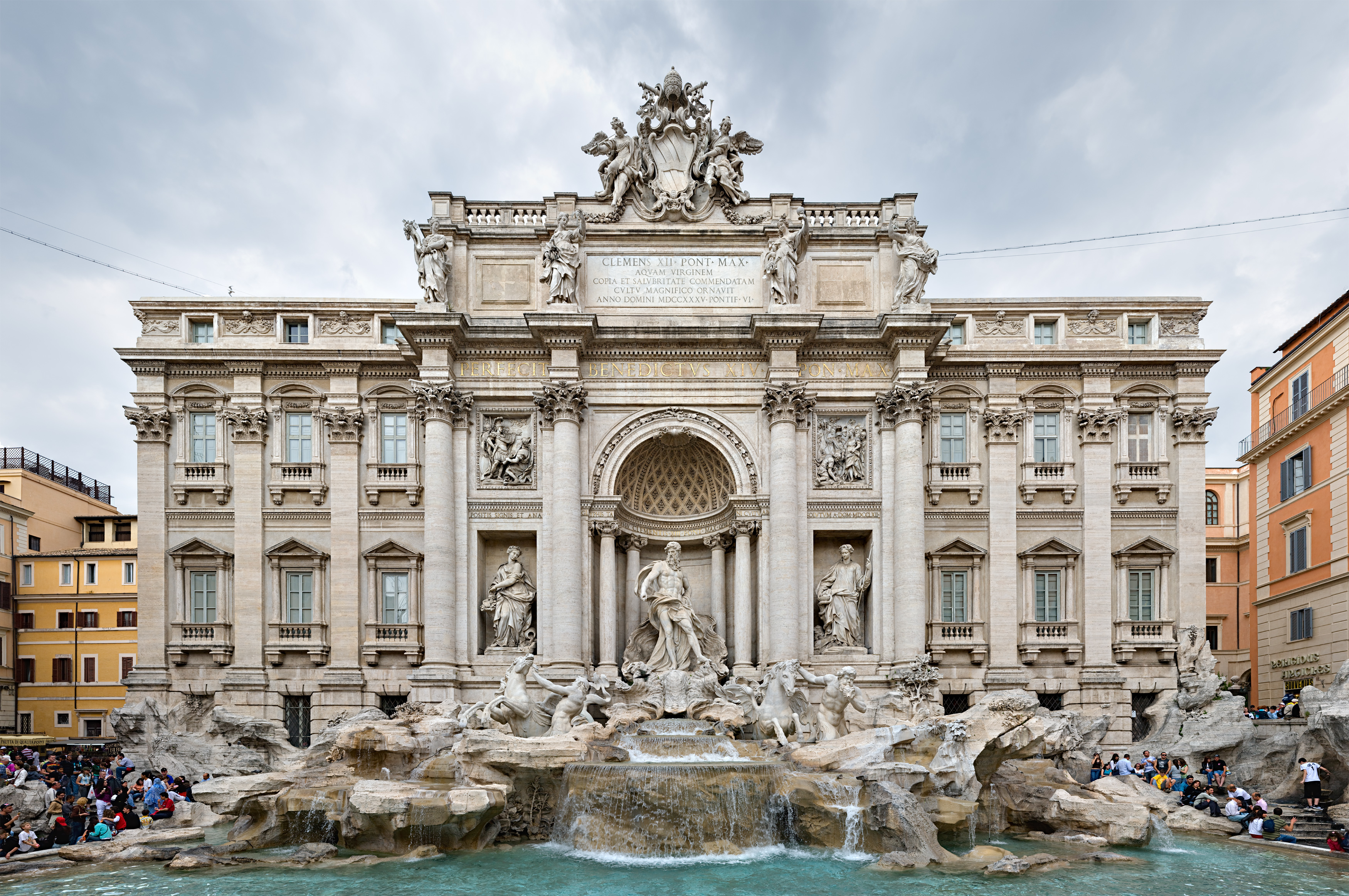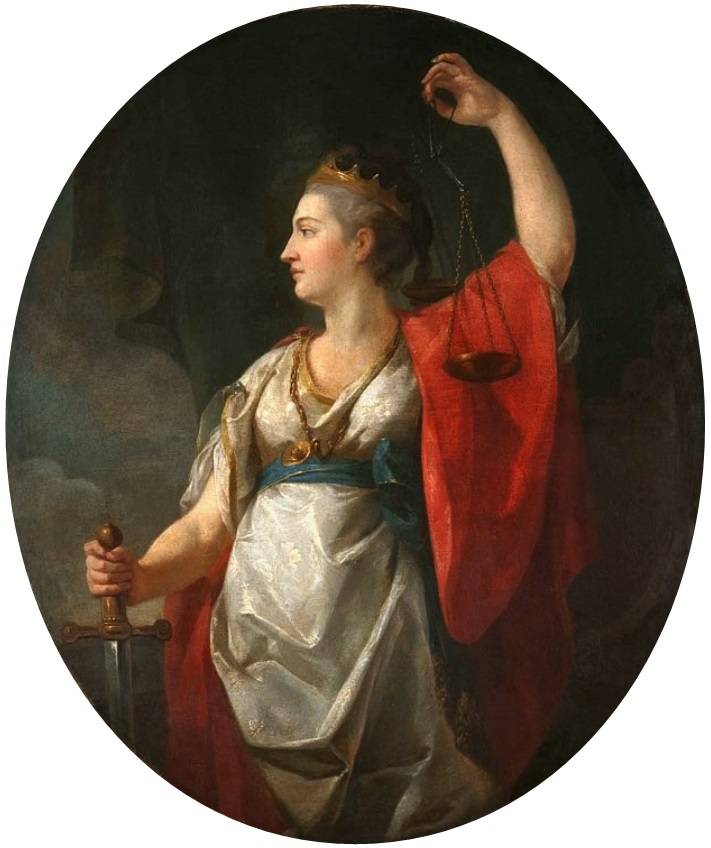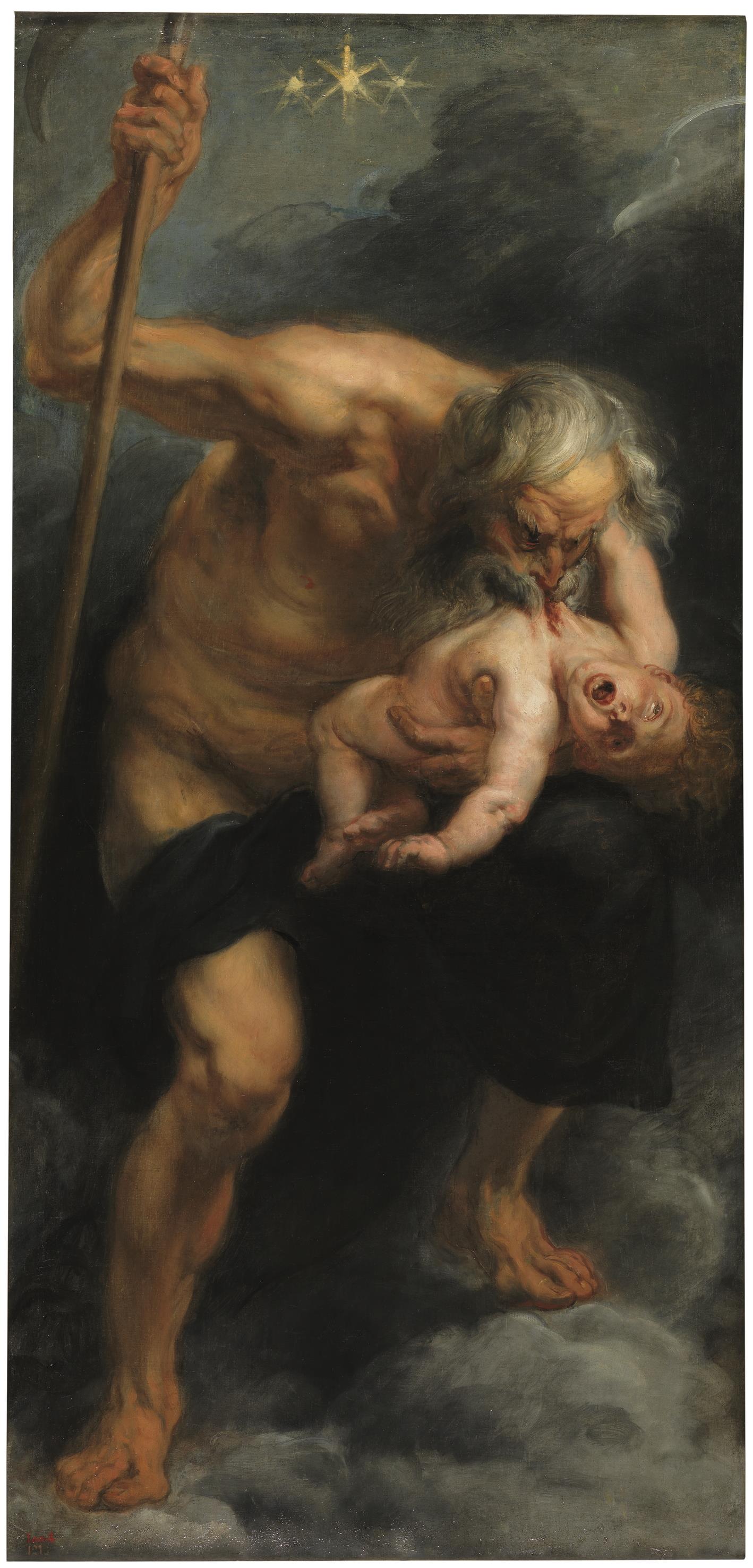|
Oceanus
In Greek mythology, Oceanus (; grc-gre, , Ancient Greek pronunciation: , also Ὠγενός , Ὤγενος , or Ὠγήν ) was a Titans (mythology), Titan son of Uranus (mythology), Uranus and Gaia, the husband of his sister the Titan Tethys (mythology), Tethys, and the father of the Potamoi, river gods and the Oceanids, as well as being the great river which encircled the entire world. Etymology According to Martin Litchfield West, M. L. West, the etymology of Oceanus is "obscure" and "cannot be explained from Greek". The use by Pherecydes of Syros of the form "Ogenos" (''Ὠγενός'') for the name lends support for the name being a loanword. However, according to West, no "very convincing" foreign models have been found. A Semitic derivation has been suggested by several scholars, while Robert S. P. Beekes, R. S. P. Beekes has suggested a loanword from the Aegean Pre-Greek substrate, Pre-Greek non-Indo-European languages, Indo-European Stratum (linguistics), substrat ... [...More Info...] [...Related Items...] OR: [Wikipedia] [Google] [Baidu] |
Tethys (mythology)
In Greek mythology, Tethys (; grc, Τηθύς, Tēthýs) was a Titan daughter of Uranus and Gaia, a sister and wife of the Titan Oceanus, and the mother of the river gods and the Oceanids. Although Tethys had no active role in Greek mythology and no established cults, she was depicted in mosaics decorating baths, pools, and triclinia in the Greek East, particularly in Antioch and its suburbs, either alone or with Oceanus. Genealogy Tethys was one of the Titan offspring of Uranus (Sky) and Gaia (Earth). Hesiod lists her Titan siblings as Oceanus, Coeus, Crius, Hyperion, Iapetus, Theia, Rhea, Themis, Mnemosyne, Phoebe, and Cronus. Tethys married her brother Oceanus, an enormous river encircling the world, and was by him the mother of numerous sons (the river gods) and numerous daughters (the Oceanids). According to Hesiod, there were three thousand (i.e. innumerable) river gods. These included Achelous, the god of the Achelous River, the largest river in Greece, who ... [...More Info...] [...Related Items...] OR: [Wikipedia] [Google] [Baidu] |
Titan (mythology)
In Greek mythology, the Titans ( grc, οἱ Τῑτᾶνες, ''hoi Tītânes'', , ''ho Tītân'') were the pre-Olympian gods. According to the ''Theogony'' of Hesiod, they were the twelve children of the primordial parents Uranus (Sky) and Gaia (Earth), with six male Titans— Oceanus, Coeus, Crius, Hyperion, Iapetus, and Cronus—and six female Titans, called the Titanides or "Titanesses" (, ''hai Tītānídes'')— Theia, Rhea, Themis, Mnemosyne, Phoebe, and Tethys. Cronus mated with his older sister Rhea, who then bore the first generation of Olympians: the six siblings Zeus, Hades, Poseidon, Hestia, Demeter, and Hera. Certain descendants of the Titans, such as Prometheus, Helios, and Leto, are sometimes also called Titans. The Titans were the former gods: the generation of gods preceding the Olympians. They were overthrown as part of the Greek succession myth, which tells how Cronus seized power from his father Uranus and ruled the cosmos with his fellow Tita ... [...More Info...] [...Related Items...] OR: [Wikipedia] [Google] [Baidu] |
Trevi Fountain
The Trevi Fountain ( it, Fontana di Trevi) is an 18th-century fountain in the Trevi district in Rome, Italy, designed by Italian architect Nicola Salvi and completed by Giuseppe Pannini and several others. Standing high and wide, it is the largest Baroque fountain in the city and one of the most famous fountains in the world. The fountain has appeared in several films, including ''Roman Holiday'' (1953); '' Three Coins in the Fountain'' (1954); Federico Fellini's classic, ''La Dolce Vita'' (1960); '' Sabrina Goes to Rome'' (1998); and '' The Lizzie McGuire Movie'' (2003). History before 1629 The fountain, at the junction of three roads (), marks the terminal point of the "modern" —the revived , one of the aqueducts that supplied water to ancient Rome. In 19 BCE, supposedly with the help of a virgin, Roman technicians located a source of pure water some from the city. (This scene is presented on the present fountain's façade.) However, the eventual indirect route of ... [...More Info...] [...Related Items...] OR: [Wikipedia] [Google] [Baidu] |
Uranus (mythology)
In Greek mythology, Uranus ( ), sometimes written Ouranos ( grc, Οὐρανός, , sky, ), is the personification of the sky and one of the Greek primordial deities. According to Hesiod, Uranus was the son and husband of Gaia (Earth), with whom he fathered the first generation of Titans. However, no cult addressed directly to Uranus survived into Classical times, and Uranus does not appear among the usual themes of Greek painted pottery. Elemental Earth, Sky, and Styx might be joined, however, in solemn invocation in Homeric epic. Uranus is associated with the Roman god Caelus and the Jewish god Yahweh. Etymology Most linguists trace the etymology of the name to a Proto-Greek form ''*Worsanós'' (), enlarged from *''ṷorsó-'' (also found in Greek ''()'' 'to urinate', Sanskrit ''varṣá'' 'rain', Hittite ''ṷarša-'' 'fog, mist'). Robert S. P. Beekes, ''Etymological Dictionary of Greek'', vol. 2 (Leiden: Brill, 2009), 1128–1129. The basic Indo-European root ... [...More Info...] [...Related Items...] OR: [Wikipedia] [Google] [Baidu] |
Rhea (mythology)
Rhea or Rheia (; Ancient Greek: Ῥέα or Ῥεία ) is a mother goddess in ancient Greek religion and Greek mythology, the Titaness daughter of the earth goddess Gaia and the sky god Uranus, himself a son of Gaia. She is the older sister of Cronus, who was also her consort, and the mother of the five eldest Olympian gods Hestia, Demeter, Hera, Poseidon and Zeus, and the king of the Underworld, Hades. When Cronus learnt that he was destined to be overthrown by one of his children like his father was before him, he swallowed all the children Rhea bore as soon as they were born. When Rhea had her sixth and final child, Zeus, she spirited him away and hid him in Crete, giving Cronus a rock to swallow instead, thus saving her youngest son who would go on to challenge his father's rule and rescue the rest of his siblings. Following Zeus' defeat of Cronus and the rise of the Olympian gods into power, Rhea withdraws her role as the queen of the gods to become a supporting fi ... [...More Info...] [...Related Items...] OR: [Wikipedia] [Google] [Baidu] |
Themis
In Greek mythology and religion, Themis (; grc, Θέμις, Themis, justice, law, custom) is one of the twelve Titan children of Gaia and Uranus, and the second wife of Zeus. She is the goddess and personification of justice, divine order, fairness, law, and custom, and her symbols include the Scales of Justice. She is also associated with oracles and prophecies, including the Oracle of Delphi. Name ''Themis'' means "divine law" rather than human ordinance, literally "that which is put in place", from the Greek verb ''títhēmi'' ( τίθημι), meaning "to put." To the ancient Greeks she was originally the organizer of the "communal affairs of humans, particularly assemblies." Moses Finley remarked of ''themis'', as the word was used by Homer in the 8th century BCE, to evoke the social order of the 10th- and 9th-century Greek Dark Ages: Finley adds, "There was ''themis''—custom, tradition, folk-ways, ''mores'', whatever we may call it, the enormous power of 'it is ( ... [...More Info...] [...Related Items...] OR: [Wikipedia] [Google] [Baidu] |
Theia
In Greek mythology, Theia (; grc, Θεία, Theía, divine, also rendered Thea or Thia), also called Euryphaessa ( grc, Εὐρυφάεσσα) "wide-shining", is one of the twelve Titans, the children of the earth goddess Gaia and the sky god Uranus. She is the Greek goddess of sight and vision, and by extension the goddess who endowed gold, silver and gems with their brilliance and intrinsic value. Her brother-consort is Hyperion, a Titan and god of the sun, and together they are the parents of Helios (the Sun), Selene (the Moon), and Eos (the Dawn). She seems to be the same with Aethra, the consort of Hyperion and mother of his children in some accounts. Like her husband, Theia features scarcely in myth, being mostly important for the children she bore, though she appears in some texts and rare traditions. Etymology The name ''Theia'' alone means simply "goddess" or "divine"; ''Theia Euryphaessa'' () brings overtones of extent (, ''eurys'', "wide", root: ) and brigh ... [...More Info...] [...Related Items...] OR: [Wikipedia] [Google] [Baidu] |
Cronus
In Ancient Greek religion and mythology, Cronus, Cronos, or Kronos ( or , from el, Κρόνος, ''Krónos'') was the leader and youngest of the first generation of Titans, the divine descendants of the primordial Gaia (Mother Earth) and Uranus (Father Sky). He overthrew his father and ruled during the mythological Golden Age, until he was overthrown by his own son Zeus and imprisoned in Tartarus. According to Plato, however, the deities Phorcys, Cronus, and Rhea were the eldest children of Oceanus and Tethys. Cronus was usually depicted with a harpe, scythe or a sickle, which was the instrument he used to castrate and depose Uranus, his father. In Athens, on the twelfth day of the Attic month of Hekatombaion, a festival called Kronia was held in honour of Cronus to celebrate the harvest, suggesting that, as a result of his association with the virtuous Golden Age, Cronus continued to preside as a patron of the harvest. Cronus was also identified in classic ... [...More Info...] [...Related Items...] OR: [Wikipedia] [Google] [Baidu] |
Coeus
In Greek mythology, Coeus (; grc, Κοῖος, ''Koios'', "query, questioning" or "intelligence"), also called Polus, was one of the Titans, one of the three groups of children born to Uranus (Sky) and Gaia (Earth). Mythology Coeus was an obscure figure, and like most of the Titans he played no active part in Greek mythology—he appears only in lists of Titans—but was primarily important for his descendants. With his sister, "shining" Phoebe, Coeus fathered two daughters, Leto and Asteria. Leto copulated with Zeus (the son of fellow Titans Cronus and Rhea) and bore Artemis and Apollo. Asteria became the mother of Hecate by Perses (son of fellow Titan Crius and half-sister Eurybia). Given that Phoebe symbolized prophetic wisdom just as Coeus represented rational intelligence, the couple may have possibly functioned together as the primal font of all knowledge in the cosmos. Along with the other Titans, Coeus was overthrown by Zeus and the other Olympians in the Titano ... [...More Info...] [...Related Items...] OR: [Wikipedia] [Google] [Baidu] |
Iapetus (mythology)
In Greek mythology, Iapetus (; ; grc, Ἰαπετός, Iapetós), also Japetus, is a Titan, the son of Uranus and Gaia and father of Atlas, Prometheus, Epimetheus, and Menoetius. He was also called the father of Buphagus and Anchiale in other sources. Iapetus was linked to Japheth (יֶפֶת) one of the sons of Noah and a progenitor of mankind in biblical accounts. The practice by early historians and biblical scholars of identifying various historical nations and ethnic groups as descendants of Japheth, together with the similarity of their names, led to a fusion of their identities, from the early modern period to the present. Mythology Iapetus ("the Piercer") is the one Titan mentioned by Homer in the ''Iliad'' as being in Tartarus with Cronus. He is a brother of Cronus, who ruled the world during the Golden Age but is now locked up in Tartarus along with Iapetus, where neither breeze nor light of the sun reaches them. Iapetus' wife is usually described as a daughte ... [...More Info...] [...Related Items...] OR: [Wikipedia] [Google] [Baidu] |
Phoebe (mythology)
In ancient Greek religion and mythology, Phoebe ( ; grc, Φοίβη, Phoíbē, associated with ''phoîbos'', "shining") was one of the first generation of Titans, who were one set of sons and daughters of Uranus and Gaia.Hesiod, ''Theogony'116-138 She was the grandmother of the sun god Apollo, the moon goddess Artemis, and the witchcraft goddess Hecate. According to myth, she was the original owner of the Oracle of Delphi before gifting it to her grandson Apollo. Her name, meaning "bright", was also given to a number of lunar goddesses like Artemis and later the Roman goddesses Luna and Diana, but Phoebe herself was not actively treated as a moon goddess on her own right in ancient mythology. Etymology Greek , feminine form of ' means "pure, bright".''A Greek-English Lexicon'' s.vφοῖβος Another meaning is "prophet", a reference to her role in myth. Used for water and fire both, it can thus be explained as generally meaning "pure", "clear", or "bright". Family Pho ... [...More Info...] [...Related Items...] OR: [Wikipedia] [Google] [Baidu] |
Hyperion (mythology)
In Greek mythology, Hyperion (; grc-gre, Ὑπερίων, 'he who goes before') was one of the twelve Titan children of Gaia (the Earth) and Uranus (the Sky). With his sister, the Titaness Theia, Hyperion fathered Helios (the Sun), Selene (the Moon) and Eos (the Dawn). Hyperion was, along with his son Helios, a personification of the sun, with the two sometimes identified. John Keats's abandoned epic poem ''Hyperion'' is among the literary works that feature the figure. Etymology "Hyperion" means "he that walks on high" or simply "the god above", often joined with "Helios". There is a possible attestation of his name in Linear B (Mycenaean Greek) in the lacunose form '']pe-rjo- ' (Linear B: Knossos.html" ;"title=", found on the Knossos">KN E 842 tablet (reconstructed ''[upe-rjo-[ne]'') though it has been suggested that the name actually reads "Apollo" (''[a]-pe-rjo-[ne]''). Mythology Hyperion is one of the twelve or thirteen Titans, the children of Gaia and Uranus. ... [...More Info...] [...Related Items...] OR: [Wikipedia] [Google] [Baidu] |





